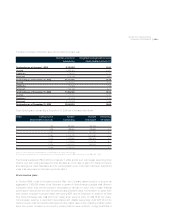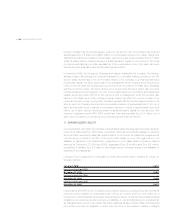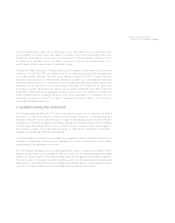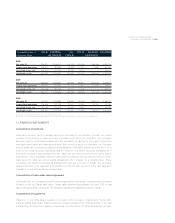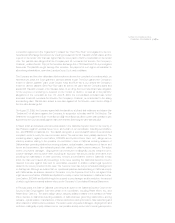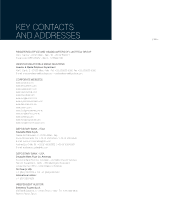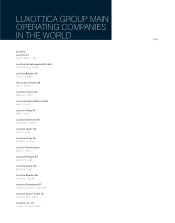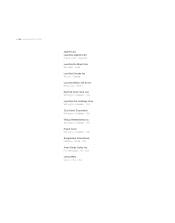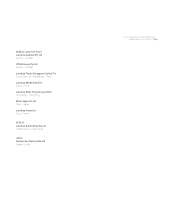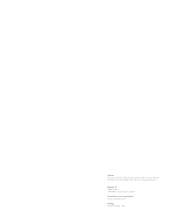LensCrafters 2005 Annual Report Download - page 149
Download and view the complete annual report
Please find page 149 of the 2005 LensCrafters annual report below. You can navigate through the pages in the report by either clicking on the pages listed below, or by using the keyword search tool below to find specific information within the annual report.> 148 | ANNUAL REPORT 2005
that would prohibit defendants from providing eye examinations or other optometric services at Pearle
Vision Centers in California. In July 2002, the trial court entered a preliminary injunction to enjoin
defendants from certain business and advertising practices. Both Cole and the State of California
appealed that decision. On November 26, 2003, the appellate court issued an opinion in which it
stated that because California law prohibited defendants from providing eye examinations and other
optometric services at Pearle Vision Centers, the trial court should have enjoined defendants from
advertising the availability of eye examinations at Pearle Vision Centers. The appellate court also ruled
in Cole’s favour with respect to charging dilation fees, which ruling partially lifted the preliminary
injunction with respect to these fees that had been imposed in July 2002. On March 3, 2004, the
California Supreme Court granted Cole’s petition for review of the portion of the appellate court’s
decision stating that California law prohibited defendants from providing eye examinations and other
optometric services at Pearle Vision Centers. The appellate court’s decision directing the trial court to
enjoin defendants from advertising these activities was stayed pending the Supreme Court’s resolution
of the issue. The Supreme Court has not yet scheduled oral argument on that appeal. Although we
believe that Cole’s operational practices and advertising in California comply with California law, the
appellate ruling may, if unmodified by the Supreme Court, compel Cole and its subsidiaries to modify
or close their activities in California. Further, Cole and its subsidiaries might be required to pay civil
penalties, damages and/or restitution, the amount of which might have a material adverse effect on the
Company’s Consolidated Financial Statements.
Following Cole’s announcement in November 2002 of the restatement of Cole’s financial statements,
the Securities and Exchange Commission (“SEC”) began an investigation into Cole’s previous
accounting. The SEC subpoenaed various documents from Cole and deposed numerous former
officers, directors and employees of Cole. During the course of this investigation, the SEC staff had
indicated that it intended to recommend that a civil enforcement action be commenced against certain
former officers and directors of Cole but not against Cole. Cole was obligated to advance reasonable
attorneys’ fees incurred by current and former officers and directors who are involved in the SEC
investigation subject to undertakings provided by such individuals. Cole has insurance available with
respect to a portion of these indemnification obligations. In March 2006, the SEC staff indicated that it
had concluded its investigation and that, contrary to its earlier indication, it would not be recommending
that an enforcement action be commenced against anyone in connection with the investigation.
On August 29, 2003, the Securities Appellate Tribunal (“SAT”) in India upheld the decision to require a
subsidiary of the Company to make a public offering to acquire up to an additional 20% of the
outstanding shares of RayBan Sun Optics India Ltd. On October 30, 2003, the Company announced
that it intended to comply with the SAT’s decision and that the Company, through its subsidiary, Ray
Ban Indian Holdings Inc., would launch a public offer to purchase an additional 20% of the outstanding
shares of RayBan Sun Optics India Ltd. In accordance with applicable Indian regulation, the Company
placed in escrow with the Manager of the Offer Indian Rupee (“Rs.”) 226 million (Euro 4.2 million). On
November 17, 2003, the Supreme Court of India stayed the SAT’s order and directed that the matter
be further reviewed at the end of January 2004, provided that the Company issue a letter of credit in
favour of the Indian securities regulatory agency within the following four week period of Rs. 630.6
million (Euro 11.9 million). The Company has complied with such requirement and the appeal is waiting
to be heard before the Supreme Court of India. If the Company is ultimately required to make the
public offer, it expects the aggregate cost of the offer to be approximately Euro 16 million, including
stipulated interest increments.
On July 14, 2004, a shareholder of Cole filed a shareholders’ class action complaint against Cole, its
directors, and the Company in the Delaware Chancery Court, known as Pfeiffer v. Cole National Corp.,
et al., Civil Action No. 569-N. The complaint alleged, among other things, that the individual
defendants breached their fiduciary duties as directors and/or officers to Cole by causing Cole to enter



